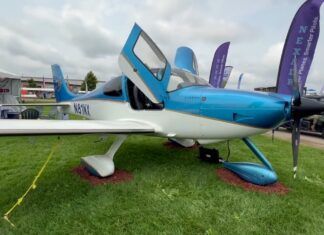Quality, Global Competition and Lycoming
In this months issue, were publishing an interview with Ian Walsh, Lycomings new general manager. Walshs principle challenge is to fix quality control lapses at the companys Williamsport, Pennsylvania engine plant and to usher Lycoming into a future certain to be dominated by lean, innovative manufacturing.
Thus far, from the perspective of an outsiders nose pressed against the window, Lycoming seems to be on the right track. Walsh has instituted vigorous new quality control strategies and is pondering new products, such as electronic controls and diesel technology. All good stuff. But the reality is that Lycoming is a poster child for an entire industry that must learn to survive in a world where competitive pressure intensifies with the release of every quarterly report.
The two major engine makers have traditionally existed in somewhat insulated niches. Yes, they underwent wrenching market shrinkage in the 1980s and have had significant competition from aftermarket parts makers such as ECI and Superior. But thats nothing compared to whats coming. Lycoming and Continental have cultures evolved from the days when FAA certification barriers essentially meant they had permanently captive markets for the engines and parts they built. Once the airframer bought into an engine program, every owner thereafter was married to that engine, be it a Lycoming or a Continental. Vestiges of that arrangement still shape the industry.
But nothing is forever and the inescapable reality of the global economy has a way of finding and rooting out the tiniest inefficiencies. Thats another way of saying that while the industrys short-term challenge-Lycoming included- may be quality control, its long-term problem will be competing against the offshore economy which increasingly is capable of producing high-quality products at a fraction of the U.S. cost of goods.
Last summer, I had a chilling conversation with an aerospace executive whose company had just completed a major deal to manufacture parts in China for foreign markets. He asked me if I thought buyers would react negatively to that. My answer: not if the price is right. But I had a question of my own: Licensing niceties notwithstanding, wasnt he worried that exporting that manufacturing technology to China would eventually erode the U.S. manufacturing base? Yes, he said, we are terrified of that. But we don’t think we have a choice.
His comment frames the challenge that Lycoming faces. Quality has to be a given. Everyone has to have it . But the entire industry has catch-up to do on the efficiency and cost front if its going to confront the challenge thats coming. Can it be done? I think it can. And profitably. But there’s not a single day to waste. And of all the things Ian Walsh has to think about, I suspect thats near the top of the list.
———-
Airplane Partnerships
There are myriad ways to gain consistent access to airplanes for personal use-from owning, to participating in clubs, to forming your own partnership. Options range from the fiercely expensive yet delightfully convenient, to the modestly priced and gnashingly annoying. Were looking for feedback on the alternative ownership experience. We want to hear from partners, club presidents, fractional customers and managers-anyone who either loves or hates the arrangement theyre in. We would like details on types of aircraft flown, numbers of partners involved, availability issues, dry operating costs, insurance and checkout parameters-and more important, what youd to do make your aircraft situation more affordable and possibly more fun.
Speaking of which: Aviation Consumer is looking for a third partner in the Mooney 231 we fly out of Venice, Florida. Low-time engine, Garmin 530 and Apollo MX-20, easy buy-in, monthly maintenance and hourlies, well-managed, trouble-free program in association with two stalwarts. E-mail [email protected] and lets talk.
-Paul Bertorelli




